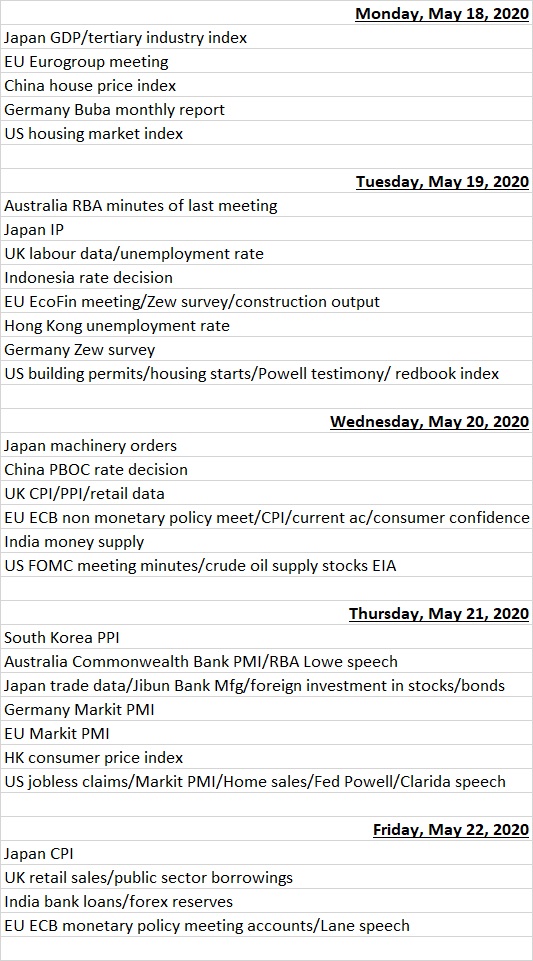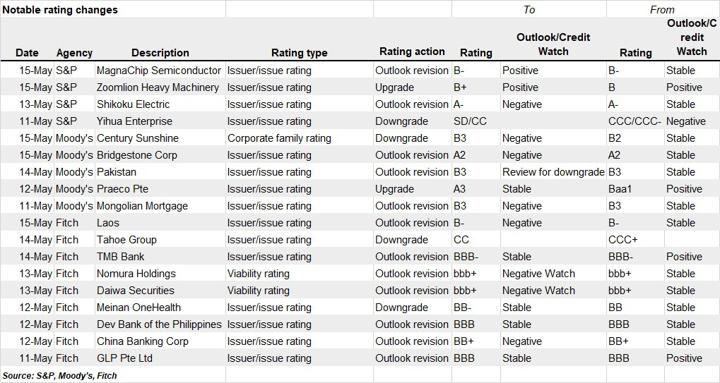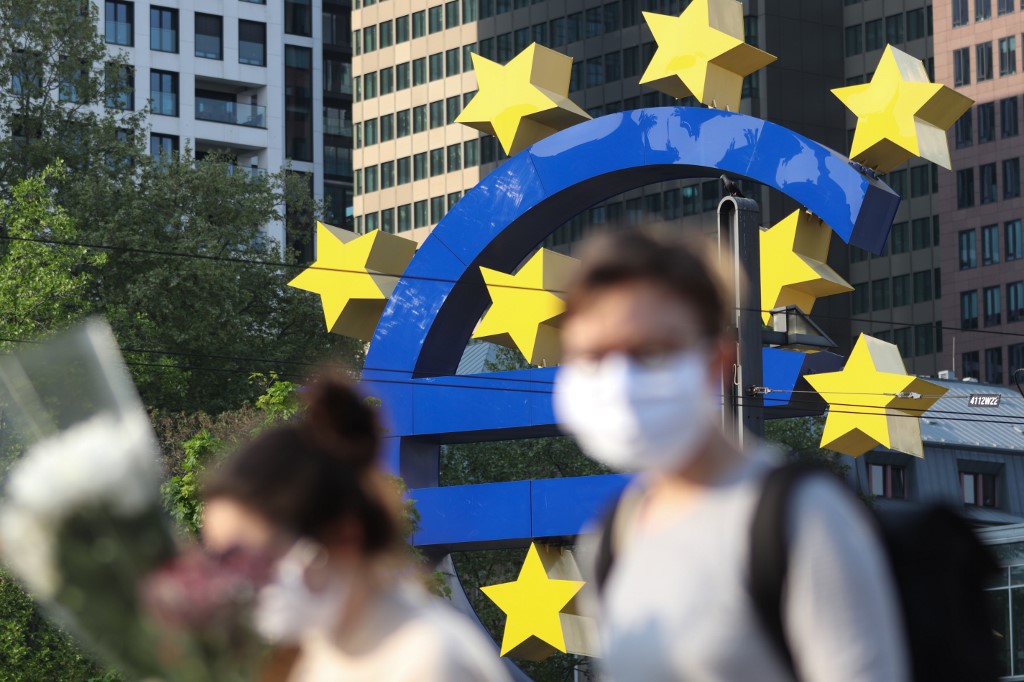(ATF) Investors will trade with a sense of trepidation as more economies reopen amid dour comments made by the US Federal Reserve about asset prices remaining vulnerable to significant declines.
China will also be in the limelight first with the PBOC deciding rates and then when the annual parliamentary gathering, opens next Friday. ING Greater China Economist Iris Pang expects a 20 basis point cut in the loan prime rate after the quarterly monetary policy report, the Chinese central bank signaled aggressive monetary stimulus.
Central banks in Indonesia and Thailand are also scheduled to meet amid expectations of more monetary easing. Also during the week, investors will parse through the latest FOMC meeting minutes after policymakers indicated a pushback against sub-zero interest rates while Fed futures skirted the negative territory in contradiction.
PMI numbers will also give investors indications about the impact from the easing of restrictions in US, Eurozone, UK, Japan and Australia.
“With some restrictions being lifted in May, and companies encouraged to restart work in many countries, there’s hope that the PMIs will have started to pick up again, albeit likely remaining in contraction,” said Chris Williamson, Chief Business Economist, IHS Markit.
Employment generation
India announced a series of reforms over the weekend and financial markets will get a chance to reflect upon the impact it will have on Asia’s third biggest economy. The announcements involved sectors like mining, power, airports, defence production, and atomic energy with additional employment-generation measures also unveiled targeting a cross section of industries.
“These reforms are more medium-term in nature, and we therefore do not expect these to have an immediate impact on reviving growth. We will continue to monitor their implementation to gauge their effect on the medium-term outlook for the Indian economy,” said Goldman Sachs in a report while cutting GDP forecast for Q2 to -45% qoq from -20%.
“The deeper trough in our Q2 forecasts reflects the extremely poor economic data we have received so far for March and April, and the continued lockdown measures, which are among the most stringent across the world.”
Fund flow
Bond funds saw inflows while emerging market equity funds, particularly those focused on China, saw redemptions in the week to May 13 as US President Donald Trump threatened China with new trade sanctions, according to funds data provider EPFR.
That week saw $1.4 billion flow into Alternative Funds, $15.7 billion into Bond Funds and $35.6 billion into Money Market Funds. Investors pulled a net $927 million out of Balanced Funds and $6.2 billion from Equity Funds.
For the first time since mid-April, bond funds recorded small inflows with a limited differentiation pattern across local and hard-currency segments and in contrast, the sizable equity outflows of previous weeks continued, said Barclays analysts in a note.
They said expectation of narrowing EM-DM growth and real rate differentials could pressure flows into EM assets, particularly to those being more sensitive to economic growth.
BofA Securities said in a note high-grade credit, government bonds and high-yield are all witnessing healthy inflows and equity flows remain in negative territory because the shape of the recovery is still uncertain.
“We see no reason for this trend to change anytime soon, and we expect fixed income funds to continue to enjoy healthy flows amid a deflationary/recessionary backdrop,” they said.
Economic data calendar


























